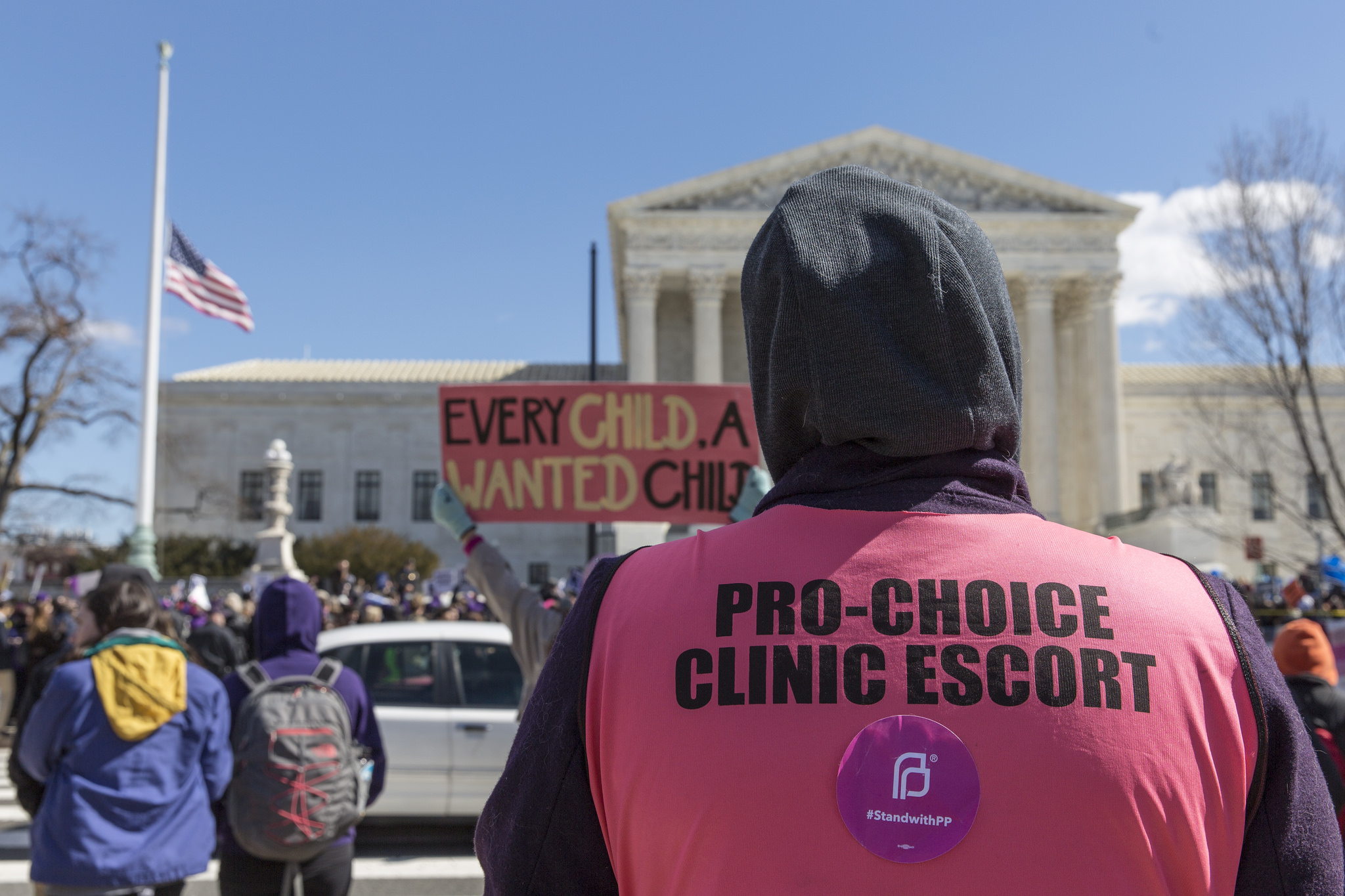Abortion rights, women of color, and LGBTQI+ people are under attack. Pledge to join us in fighting for gender justice.
The 45th Anniversary of Roe v. Wade under the Trump Administration


January 22, 2018, marks the 45th anniversary of Roe v. Wade, the Supreme Court decision that confirmed a woman’s constitutional right to decide whether to obtain an abortion. While the anniversary of Roe is a time for reproductive rights advocates to celebrate successes of the past year, as well as rally their grassroots supporters for continued fights, this year is distinctive, with unprecedented attacks on a woman’s right to reproductive health care. In just its first year, the Trump Administration has attacked that right, doing everything in its power to undermine, restrict, and eliminate a woman’s right to abortion and other reproductive health care.
The Trump Administration worked quickly from day one, both to position individuals that are hostile to reproductive health into key positions, and to pursue an anti-abortion agenda. In one of his first acts as President, Trump signed an executive order reinstating the “global gag rule” – a harmful policy that prohibits international non-governmental organizations that receive U.S. government funding from using their own money to provide information, referrals, or services for legal abortion. In the same vein, Trump Administration appointee Scott Lloyd, the head of the Office of Refugee Resettlement, notoriously put policies in place that would illegally deny young pregnant immigrant women their right to abortion. Also, just this week, the Department of Health and Human Services’ Office of Civil Rights, which is supposed to enforce the laws that protect “fundamental nondiscrimination and health information privacy rights,” launched a whole new division dedicated to ensuring that women and LGBTQ people can be denied health care (including abortion), or in other words, allowing discrimination rather than ending it.
Likewise, Trump has expressed his disdain for Roe – and nominated and appointed a slew of judicial nominees that are hostile to a woman’s right to abortion. As a candidate, he guaranteed that his Supreme Court nominees would vote to overturn Roe v. Wade, even declaring that if he were elected, Roe would be overturned “automatically.” Trump’s first Supreme Court justice, Neil Gorsuch, has a record hostile to the constitutional right to privacy and has criticized Supreme Court abortion cases. Some of Trump’s lower court judicial nominees even go so far as to compare abortion and slavery.
The Trump administration has also emboldened federal and state lawmakers to attack a women’s right to abortion. They have demonstrated that they support federal lawmakers in their quest to pass laws that attack reproductive health care, including attempts to defend Planned Parenthood, bills that ban abortion, and bills that withhold insurance coverage of abortion. Likewise, their zeal for attacking reproductive health care has reinvigorated the adoption of anti-abortion restrictions at the state level.
The Trump Administration’s attacks on a woman’s right to abortion fly in the face of women’s health and promote ideology over science and medicine. Politics don’t belong in the exam room, and the one in four women that have an abortion in their lifetime should have access to reproductive health care when they need it, regardless of who is in office. Preventing a woman from getting the abortion care she needs not only violates her constitutional rights, but can have a detrimental effect on her health, her family, and her life. Just this week, a new study confirmed what reproductive rights advocates and medical professionals have known for years: women who are denied a wanted abortion are more likely to experience economic hardship and insecurity. We can’t stand for policies that prevent women from getting critical health care.
On the 45th anniversary of Roe v. Wade, we are faced with extreme threats to Roe v. Wade and an individual’s right to obtain the reproductive health care she needs. These threats posed by the Trump Administration must be taken seriously and we must continue to fight back.






